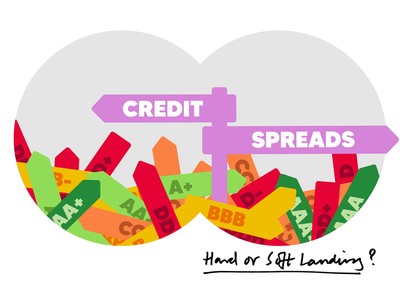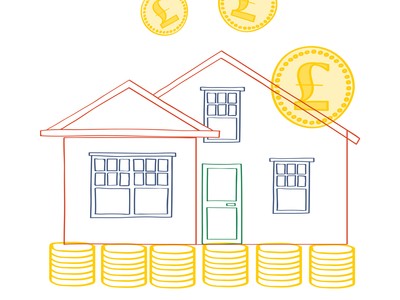Our asset allocation committee is one example of this, via their monthly output showcasing their views on a global basis; this is then complemented by a sectoral view from the stock selection committee. The combination of these top down and bottom up opinions is an important resource for our investment managers to validate their own investment theses or to generate new investment ideas.
These committees, which consist of members of our research team and a number of investment managers, aim to provide a view that seems most suitable in the current climate. The output of the monthly meetings remains a suggested stance and it is important to note, that the views expressed are those of the committees and may not necessarily be those of your individual investment manager.
Here we present a snapshot of the current views.
SECTOR VIEWS
|
Communications |
We have seen a faster than expected unwind in digital demand from peak levels reached during COVID-19. Online gaming spend is expected to moderate as player engagement reduces. Digital advertising spend is also contracting. The telecommunications subsector may prove more resilient, but represents a small weighting over the overall sector. |
|
|
Consumer Discretionary |
Consumer sentiment is weak. The cost of living crisis is squeezing disposable income, with higher necessary outlays on food and cost of energy hitting discretionary spend. Higher interest rates are pushing up mortgage and rental costs in addition to the cost of unsecured borrowing, which is discouraging credit card spend. |
|
|
Consumer Staples |
Sector valuations look fair. Whilst the sector faces rising input cost inflation, which has hurt gross margins, we have seen evidence of inflation passing through to customers. Rising bond yields have the potential to hurt valuation multiples, but the deteriorating macroeconomic backdrop is of more concern, so focus is more on the earnings resilience of the sector. |
|
|
Energy |
Investors are focussed on short term supply as Russia faces ongoing constraints on its exports of oil and gas. Economic uncertainty has increased during the year, and with energy prices heavily correlated to GDP, we are now less constructive on the performance of the sector. Capital returns to shareholders should nonetheless remain strong. |
|
|
Financials - Banks |
The fear of contagion from the succession of bank failures seen earlier this year has diminished, which leaves us once more with the balancing act of understanding the negative drivers of higher credit losses into an economic slowdown versus the prospect of more persistently high interest margins. Interest rates look to be close to peaking, leaving us with a near-term net positive view for this sector. |
|
| Diversified Financials |
We change our stance to neutral in light of higher inflation and interest rates, which we expect to dampen financial assets. |
|
| Insurance |
Normally, life insurance performs better with higher interest rates as long-term liabilities are lowered and prospective fixed income investment returns increase. The yield curve is currently inverted, meaning investment returns are lower. General insurance also appears to be benefiting from stronger insurance pricing, leaving us neutral on this sector. |
|
| Health Care |
The resilience of global healthcare spend means this sector offers growth and defensive attributes. The sector has outperformed over the past year, and should continue to, as pharmaceutical and medical technology companies exhibit good relative earnings growth at reasonable valuations. |
|
| Industrials |
Geopolitical uncertainty has benefited the earnings outlook for defence exposed names. Yet, a higher proportion of companies have more cyclically exposed industrial end markets, and these firms have held up better than expected. Recent earnings results confirm a strong industrial backdrop, resulting in our more positive view on the sector. |
|
| Information Technology |
Many technology names are increasingly viewed as non-discretionary, however valuation will be the bigger short-term driver of performance. The recent sector rally means valuations are elevated. Higher levels of inflation could persist and many expect to see further interest rate hikes. Given the sensitivity of the sector to interest rates, we believe it prudent to be positioned underweight. |
|
| Materials |
The short-term outlook is very uncertain, however the markets have rallied on Chinese reopening optimism. At company level, balance sheets remain strong. Longer term, we remain bullish on energy transition metals, e.g. copper, but flag short term weakness. The neutral rating is driven by the expectation of strong dividends. |
|
| Real Estate |
The rise in interest rates is now feeding through to valuations. As rates rise, so do property yields and this is offsetting any growth in rental income as a result of inflation-linked leases. It seems likely there will be further valuation declines to come, although much of this has already been priced in, hence our neutral stance. |
|
| Utilities |
The sector has inflation protection built into regulatory models, which should protect companies from input cost increases and margin pressure. Yet we are cognizant of the bond proxy nature of the sector and, with the uncertainty surrounding interest rates, remain neutral and would want to see peak rates before becoming more positive. |
UK EQUITIES
|
UK |
The UK trades at cheaper PE multiples than its international peers. The FTSE All-Share is on 11x next year’s profits compared to the S&P500 on 19x and Europe on 14x. Higher UK inflation is an issue because it drives higher interest rates and slower growth. UK inflation is on course to peak higher than US and Europe and to decline with a lag behind the others. |
INTERNATIONAL EQUITIES
|
North America |
The American market looks expensive. The jury is still out on whether the USA is heading into a recession or whether the consumer supports the economy enough to avoid a recession and growth stocks being hit with persistently higher rates. Downgrades to the credit ratings of US banks serve to remind us of the fragility of this sector. |
|
|
Europe |
Monetary policy is tightening gradually and the labour market has spare capacity, which means that rates should peak at a lower point relative to others. Europe is also helped by reshoring back to the continent’s traditionally strong manufacturing economy. The largest potential risk to a European recovery is higher gas prices as we move into the winter, which would stall industrial output. |
|
|
Japan |
Japan has had a weak quarter and we have now upgraded back to overweight. The Bank of Japan has recently moved its yield curve control for the ten-year bond from 50 basis points (bps) to a range of 50 bps to 100 bps, which should support the yen. High inflation expectations should also help the yen. Japan is a beneficiary of an exit from deflation. Dividends and buybacks are accelerating as companies return cash to shareholders. Inflows could increase further. |
|
|
Asia Pacific |
Asia Pacific is heavily influenced by China and recent Chinese data has been poor, so China may act to stimulate the economy. The Chinese look as if they will miss their 5% GDP target for 2023. Vietnam continues to be the primary beneficiary of the diversification of supply chains from China. |
|
|
Emerging Markets |
Equity valuations look cheap relative to developed markets. Central banks have tightened policy ahead of developed markets and should be first into a recession. A strong USD would be a headwind for emerging markets. |
BONDS
|
Conventional |
It looks as if we are close to the peak of interest rates, and there may be some attractive high yields available in short-dated gilts. That said, buying longer-dated gilts could also act as a recession hedge. |
|
|
Corporate |
Spreads of corporate bonds over government bond equivalents have stabilised at a point where they appear unlikely to discount the effects of an economic slowdown or recession on default rates. |
|
|
Index Linked |
With a positive real return, linkers are once more a valid protection against inflation. If inflation proves stickier over the medium term, shorter-dated inflation-linked bonds should do well. |
CASH
|
Cash |
We are now underweight cash as we see good opportunities in the equity and bond markets. |
PROPERTY
|
Property |
The expectation of regular income from rent is a positive. But on the other hand, fear of recession, tenant defaults and lower demand for property keep us underweight. |
ALTERNATIVES
|
Alternatives |
Less correlated opportunities and more market neutral hedge fund investments could be sought after. These could include gold as a diversifier, inflation hedge and a way to reduce currency debasement risk. |



